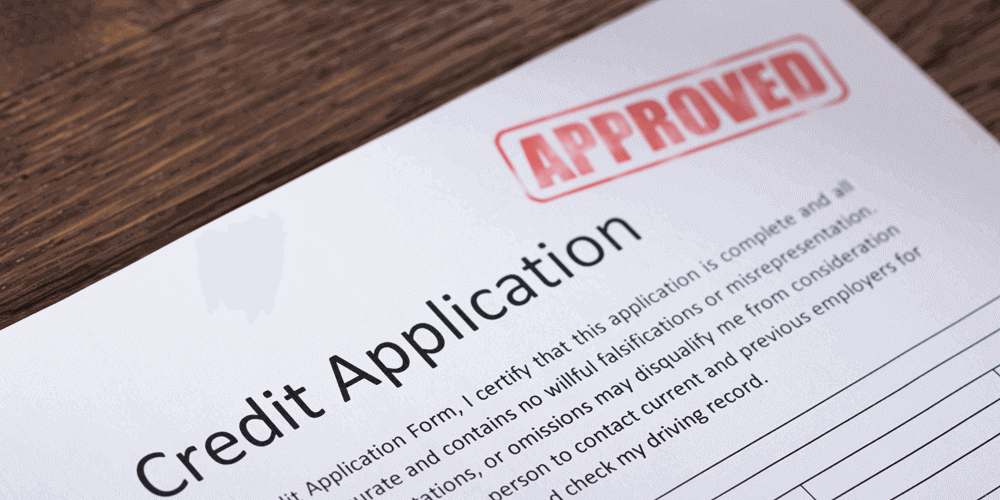Student Loan Forgiveness Update: Do You Qualify?


Highlights:
- Americans collectively owe more than $1.76 trillion in student loan debt.
- Announced 8/24/22, President Biden's student loan forgiveness plan benefits borrowers who earn under $125,000 per year based on adjusted gross income.
- This debt cancellation is only available for federal borrowers and does not extend to privately held student loans.
If you're among the millions of Americans who collectively hold over $1.76 trillion in student loans, you're probably intrigued by reports that the Biden administration plans to reduce or eliminate a significant portion of student loan debt.
Find out if you may qualify for student loan forgiveness under this plan and how it could affect your credit scores.
President Biden's student loan forgiveness plan
Announced 8/24/22, President Biden's plan forgives $10,000 in federal student loan debt for Americans earning less than $125,000 per year, or $250,000 per year for married couples filing taxes jointly or for those filing as heads of household. Low-income borrowers who qualified for Pell grants are eligible for an additional $10,000 in forgiveness.
In the past several decades, tuition for both public and private colleges has risen astronomically, while wage growth has lagged. Prospective students have turned to federal student loans to compensate for the disparity, and schools often include them in financial aid packages. The result: a surging student debt crisis.
Student loan forgiveness is one aspect of a set of reforms that are aimed at resolving this crisis. Proponents argue that widespread debt forgiveness could stimulate the economy. Wiping the slate clean for borrowers could free up money for consumers to spend on big financial commitments they would otherwise be unable to afford, like buying a house or a car, or running a small business.
How do I qualify for student loan forgiveness?
President Biden's broad student loan forgiveness plan applies to the first $10,000 of federally held student loans for borrowers who earn less than $125,000 annually for individuals or $250,000 for married couples or heads of households. Borrowers who qualified for Pell Grants could be eligible for an extra $10,000 for up to $20,000 in debt cancellation.
This debt cancellation is only available for federal borrowers and does not extend to privately held student loans.
The Department of Education is setting up an application process for borrowers to submit claims. The application process will be available no later than when the pause on federal student loan repayments terminates at the end of 2022.
Nearly 8 million borrowers may be eligible to receive relief automatically because their relevant income data is already available to the U.S. Department of Education. To be notified when the process has officially opened, sign up at the Department of Education subscription page.
President Biden has yet to confirm when exactly this forgiveness program will take effect. For updates and additional information about the forgiveness process, visit studentaid.gov/debt-relief-announcement/.
Student Loan Forgiveness Program Options
In certain select situations, borrowers may be eligible for other student loan forgiveness programs based on income and occupation.
For example, you may be eligible for one of several existing programs designed to eliminate your debt if you are low income, if you work as a teacher, if you are a federal or state government employee, if you have declared bankruptcy (in rare cases) or if you've been defrauded by a for-profit institution.
- Public Service Loan Forgiveness (PSLF): The PSLF program forgives federal student loan debt for some full-time government or non-profit employees enrolled in an income-driven repayment (IDR) plan. Applicants must also have made 120 payments toward their debt.
- Teacher Loan Forgiveness: This program forgives a maximum of $17,500 in student loan debt for teachers who work in a low-income school or other educational service for five consecutive years.
- Income-Driven Repayment Plans: The four different types of IDR plans, meant to reduce monthly payments for low-income borrowers, establish a repayment period after which all remaining debt is canceled.
- Borrower Defense to Repayment: This type of loan forgiveness relieves borrowers who have been defrauded or misled by schools that failed to deliver certain services or instruction.
- Bankruptcy: Sometimes declaring bankruptcy can result in total student loan discharge. It's uncommon and there are many downsides to a bankruptcy declaration, so consider this a last resort.
Visit the U.S. Department of Education's student loan forgiveness page to determine your individual eligibility and to apply for any of these programs.
How will student loan forgiveness affect your credit scores?
If you're able to secure loan forgiveness, you might see your credit scores drop slightly. That's because student loans, like any other loan, contribute to your credit mix, or the different types of debt that you hold. Ideally, your credit report should include a combination of installment loans, which include student and car loans, and revolving credit accounts, like a credit card. Depending on your financial profile, resolving your student loan debt might decrease the diversity of your credit mix and cause a minor and temporary reduction in your credit scores.
Borrowers who qualify for the student loan forgiveness plan will need to navigate the federal loan servicing system and keep a close eye on their credit reports for any mistakes. Review your credit report and credit scores throughout the process and be aware of how your student loans may affect your credit profile.
You can receive free Equifax credit reports with a myEquifax account. Sign up and look for “Equifax Credit Report” on your myEquifax dashboard. For a free monthly VantageScore 3.0 credit score, click “Get my free credit score” on your myEquifax dashboard to enroll in Equifax Core Credit™. A VantageScore is one of many types of credit scores. You can also get free credit reports annually from the three nationwide credit reporting agencies at AnnualCreditReport.com.
Get your free credit score today!
We get it, credit scores are important. A monthly free credit score & Equifax credit report are available with Equifax Core CreditTM. No credit card required.



